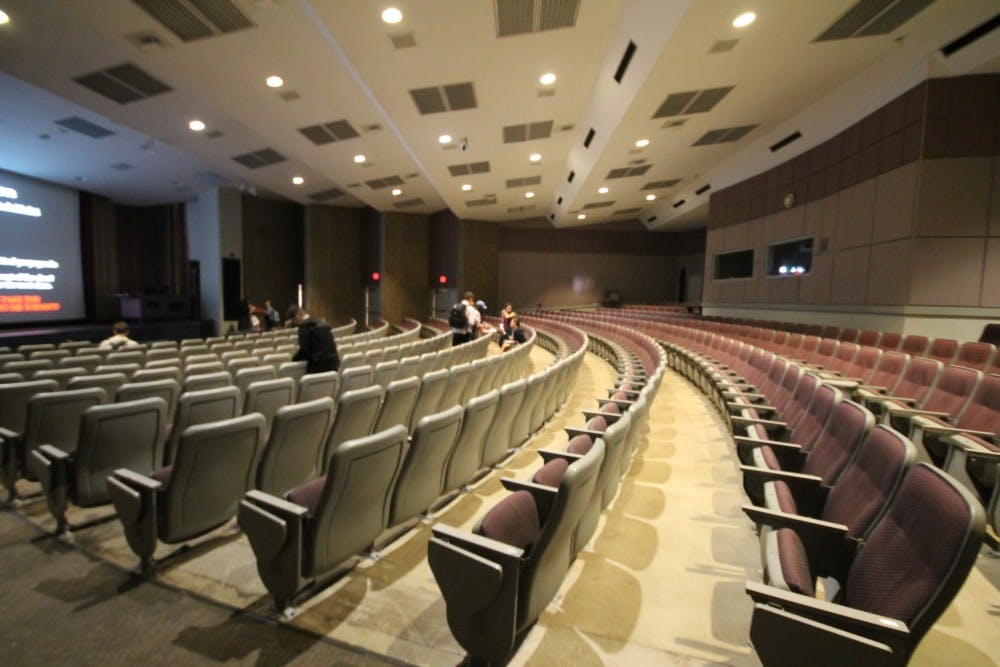We are all familiar with the big lecture hall setting, especially at ASU where the student population far surpasses other universities. It is this setting that has promoted a passive learning experience for students in which we memorize the material when it is convenient for us. However, this system is failing students, and some professors are employing active learning to counter this. This initiative would urge students to use our prior knowledge to reason through problems collaboratively and logically as opposed to absorbing information thrown at us by the professor.
In Biology 281 and 282, two introductory courses for biology and biochemistry majors at ASU, I have seen this first-hand. My two professors, Dr. Christian Wright and Dr. Michael Angilletta Jr., are partaking in this new wave of active learning in their biology courses, shifting the focus and stigma surrounding biology in the process. This has been met with unwarranted opposition from the student body, however.
In lectures, they present pertinent facts about topics and have the students apply this knowledge to case studies, thus forcing them to determine the “how” or “why” of an experiment instead of urging them to memorize a sequence of facts. Though their classes have over 300 people, they call on students to answer questions or encourage them to work collaboratively to solve problems. In BIO 282, the tests are predominantly true or false questions pertaining to a series of case studies.
From what I gathered from my peers, these tests were not initially well-received by students. This isn't to say all students struggled with the tests. After all, the averages have been high. It is the work load and demand for comprehension that make students wary of them. I have to admit that these tests flustered me as well; they forced me to think logically, deconstructing the intent of the statement and its relation to the case study. In high school, I flourished due to the fact I could memorize a large amount of facts but that does not suffice here. Many other students reacted similarly, blaming their struggle on the nature of the course instead of focusing on their reasoning skills.
The professors gave students the opportunity to give feedback on the class in an online survey. I will admit that my survey, though not necessarily a scathing review, was critical of the class. I have never had to work this hard for a course. I didn’t know what to study, how to prepare or why the answer was never obvious to me on the tests. Little did I know at the time that it was for the good of my education and career.
It is only natural that students are upset with this change; we are familiar mostly with big lecture settings where they can browse Twitter or Facebook at the back of the class. Active learning environments in which students are pushed to participate or apply prior knowledge in a classroom setting is not as common as it should be.
A study conducted by Proceedings of the National Academy of Sciences showed a significant decrease in the number of failing students when active learning was used in a classroom setting. Similarly, research shows that students remember 70 percent of what they say and write and remember 90 percent of what they do in a classroom as opposed to remembering only 10 percent of what they read and 30 percent of what they see.
It is clear that active learning is the key to retaining information long-term, but youngsters like us are not always concerned with the long-term. We want to read an excerpt from a textbook, take a quiz and move on. Unfortunately, this isn’t learning; this is regurgitating facts and then forgetting them, which will not suffice, especially in STEM fields. Many courses in college are cumulative subjects; the knowledge we gain in this class will most likely apply to both upper level classes we take in the future and our careers in the field, so it is important that we build ourselves a strong foundation of learning skills now.
Unfortunately, college students can be lazy, and taking on a feat that requires us to change our way of thinking takes gall, but it is a necessary task for this major, and I commend these professors for putting in the work to make this change. Hopefully, the mindsets of students and other professors at ASU will follow suit.
Related links:
Critical thinking skills boost philosophy students after graduation, researchers say
NoteBowl social learning platform revolutionizes online learning
Reach the columnist at ghirneis@asu.edu or follow @ghirneise2 on Twitter.
Editor’s note: The opinions presented in this column are the author’s and do not imply any endorsement from The State Press or its editors.
Want to join the conversation? Send an email to opiniondesk.statepress@gmail.com. Keep letters under 300 words and be sure to include your university affiliation. Anonymity will not be granted.
Like The State Press on Facebook and follow @statepress on Twitter.




